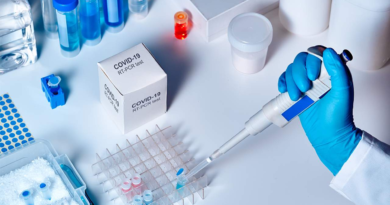Who’s getting COVID-19 vaccine boosters in San Diego County?
Limited access to COVID-19 vaccines earlier this year is now shaping the region’s booster rollout, according to data released this week by San Diego County.
About 344,000 residents have gotten a booster shot. Roughly six out of every 10 of them are 60 or older, and two out of every three are White or Asian. The county released the figures Wednesday in a report that also broke down the numbers by gender and region.
The report is getting mixed reviews from local public health and infectious disease experts. Some are encouraged that most people who’ve gotten boosters are seniors, as they’ve also accounted for most cases of severe disease. But other experts are concerned that Black and Hispanic residents are underrepresented among booster recipients and feel that more fully vaccinated San Diegans of all backgrounds need to get boosters with the holiday season fast approaching.
“It echoes the early rollout of the vaccine,” said San Diego State University epidemiologist Corinne McDaniels-Davidson. “Those that were most vulnerable and most impacted by the early pandemic are once again vulnerable as they remain unboosted.”
Local officials will continue to update the report. The county first announced during a press briefing on Sept. 27 that it planned to share vaccine booster data but did not begin doing so until last week. A county spokesperson did not provide The San Diego Union-Tribune with a reason for the delay.
The state and county have in recent weeks encouraged fully vaccinated people 18 and up to get a booster shot if they received Johnson & Johnson’s vaccine at least two months ago or a second dose of the Pfizer or Moderna vaccine at least six months ago, regardless of their medical history or occupation.
San Diegans vaccinated at the end of 2020 or early this year were the first to become eligible for boosters. In the early days of the rollout, vaccine demand far exceeded supply, so public health officials offered doses to health care workers and nursing home staff and residents to keep hospitals afloat and protect those most vulnerable to COVID-19. Older adults were up next, and it took months for essential workers and younger, healthier residents to become eligible.
Here’s a look at who is (and isn’t) getting coronavirus booster shots in San Diego County.
About 85 percent of coronavirus deaths in San Diego have occurred among residents 60 and up, and this group accounted for the majority of local booster recipients.
“That’s encouraging because that (group) is the primary target for the boosters,” said Dr. Mark Sawyer, an infectious disease expert at Rady Children’s Hospital in San Diego.
Sawyer, who sat on the Food and Drug Administration advisory panels that voted in favor of boosters, was a bit concerned that booster rates drop off for those 80 and up. About 26 percent of booster recipients are 70 to 79, while just 12 percent are 80 and older. And there’s a similar gap when looking at the percent of booster recipients within each age bracket.
Sawyer thinks that may be because some elderly residents are homebound and can’t easily go out to a vaccine site. County data underscore the importance of reaching them. Case in point: Roughly 18 percent of San Diegans 80 and older who’ve gotten a coronavirus infection have died from COVID-19.
Homebound residents of any age can call 211 to arrange to get a coronavirus vaccine at home.
Some of the region’s communities of color have also been hit hard by the virus. Latinos make up a third of the county but account for half of COVID-19 cases and 45 percent of deaths. That’s why McDaniels-Davidson was concerned that only 14 percent of booster doses have gone to this group.
“The booster rate is so, so, so low,” she said.
Vaccination rates among the Latinos population also lagged earlier this year, but a concerted effort by community-based organizations helped change that. About 63 percent of Latino residents 5 and older are fully vaccinated against COVID-19, identical to the rate among Asians and higher than the 57 percent rate among White San Diegans.
“I’m so glad they put this data out because it’s a fantastic opportunity to get out in front of it,” said McDaniels-Davidson, who has led local contact tracing efforts in underserved neighborhoods. “They have a roadmap. They know what to do. We know what to do.”
The county report also shows that about 56 percent of residents who’ve gotten a booster are female. That tracks with the fact that, overall, 53 percent of immunized San Diegans are female.
Some experts, such as Sawyer, say the main benefit of boosters is protecting at-risk groups from severe disease. Others, including McDaniels-Davidson, stress that these extra shots play an important role in limiting infection and transmission, including among younger and healthier populations.
They all agree on one point: The key to controlling the pandemic remains vaccinating the unvaccinated. And in San Diego County, more than 500,000 eligible residents have yet to get the shots.
“I’m encouraged overall, but I don’t want to distract the general public’s attention about the fact that we have a bunch of totally unimmunized people,” Sawyer said. “That’s a bigger problem.”




